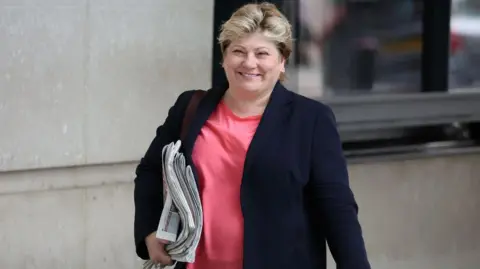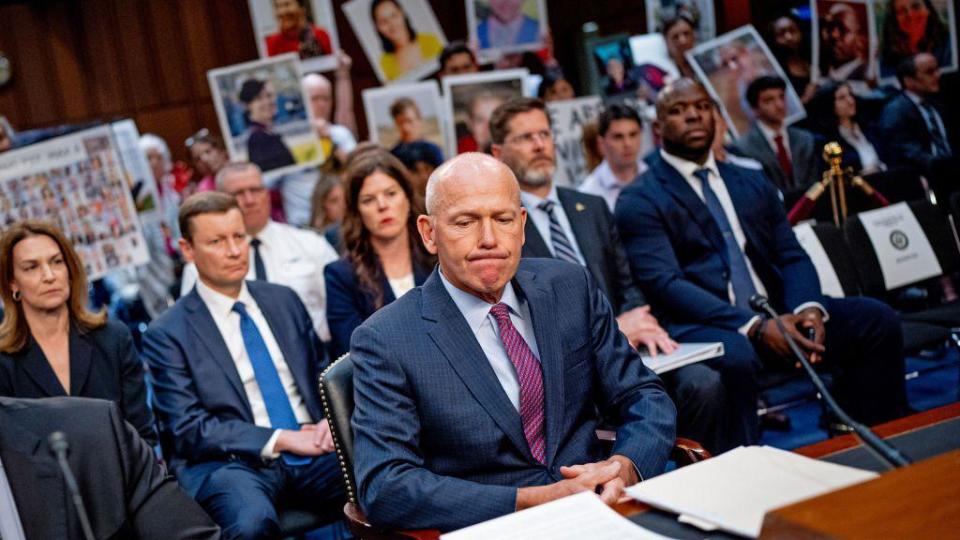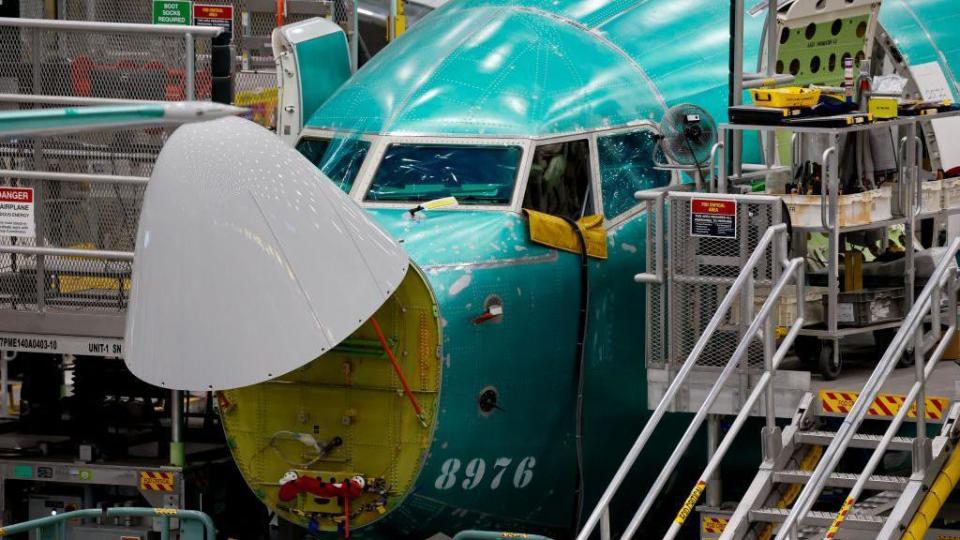World News
U.S. and China Continue to Talk, but Economic Divide Remains Wide

When Treasury Secretary Janet L. Yellen traveled to Beijing last summer, her mission was to re-establish a dialogue between the world’s largest economies and stabilize a relationship that appeared to have reached rock bottom.
The United States and China created formal economic working groups to keep the conversation going. Months later, Ms. Yellen met with her Chinese counterparts in San Francisco and Morocco. And the Treasury secretary’s consumption of a dish made with psychedelic “magic” mushrooms at a Yunnan-style restaurant in Beijing sparked something of a culinary craze in China, where Ms. Yellen is popular for being an acclaimed economist.
But despite those signs of progress, thorny economic issues continue to divide China and the United States. When Ms. Yellen arrives on Thursday for four days of meetings in Guangzhou and Beijing, the two sides are expected to exchange views on the state of the global economy, the Biden administration’s concerns about China’s wave of green energy technology exports and Beijing’s frustration’s about mounting barriers to Chinese investment in the United States.
“We don’t want to decouple our economies,” Ms. Yellen said on Wednesday during a stop in Alaska on her way to China. “We want to continue, and we think we both benefit from trade and investment, but it needs to be on a level playing field.”
But she suggested that the administration was prepared to take new trade actions against China to ensure the survival of the clean energy sector that the United States has been trying to grow through tax subsidies and other investments.
Here are some of the most contentious issues that have sown divisions between the United States and China.
A flood of clean energy exports
A top priority for Ms. Yellen will be to convey the Biden administration’s deep concerns that a glut of heavily subsidized green technology exports from China is distorting global markets.
Ms. Yellen, during a visit to a solar cell plant in Georgia last week, made the case that a surge in Chinese exports of electric vehicles, batteries and solar technology was problematic at a time when the United States is spending huge sums to try to develop those industries. She maintained that China was following the same playbook it used when it flooded global markets with cheap, state-subsidized steel and aluminum, hurting American producers that were unable to compete.
On Wednesday, Ms. Yellen suggested that the United States could take action to ensure that money being spent as part of the Inflation Reduction Act is not undercut by China’s practices.
“We’re providing tax subsidies to some of these sectors, and I wouldn’t want to rule out other possible ways in which we would protect them,” she said when asked about the potential for new tariffs on Chinese imports.
China has focused on factory production to bolster its sputtering economy. Its exports, measured in dollars, rose 7 percent in January and February over last year. The surge of exports has also angered officials in the European Union, and the bloc announced last month that it was preparing to charge tariffs, which are import taxes, on all electric cars arriving from China.
China has pushed back on claims that its economy is struggling and overly reliant on exports. But it has set an ambitious economic growth target of “around 5 percent” for this year, and reaching it will depend in large part on strong demand for goods produced by Chinese factories — electric vehicles, solar panels and consumer electronics.
American tariffs
The Biden administration has kept tariffs on more than $300 billion of Chinese products. Those levies, first imposed by the Trump administration, remain a significant source of tension between the two countries.
Ms. Yellen came into office saying that the tariffs are taxes on consumers and argued that the Trump levies were not well designed. However, rolling back tariffs is particularly difficult in an election year, and Ms. Yellen is unlikely to be able to offer China much relief on that front.
The White House has been weighing the possibility of relaxing some of the tariffs that hit U.S. consumers and imposing new ones that would be focused on China’s green energy exports.
And another round of U.S. solar tariffs could be coming this summer when a two-year pause that President Biden issued in 2022 expires.
China has its own gripes about America’s trade policies and filed a complaint last week with the World Trade Organization contending that the Biden administration’s electric vehicle subsidy policies are discriminatory.
Cross-border investment
The United States and China both say they welcome foreign investment, but their policies remain hostile.
American companies operating in China have complained over the last year about having their offices searched and facing harassment from Chinese authorities. Ms. Yellen, who will meet with American business executives in Guangzhou, has been seeking clarity on the scope of a Chinese anti-espionage law that foreign firms believe will lead to additional government scrutiny.
China’s leaders are pushing to change the perception that the country is no longer a sound place for foreign investors to put their money. Beijing has reason to be concerned: Foreign direct investment in China fell to its lowest levels in three decades last year, and the government took a series of measures that left foreign businesses feeling that the country is an increasingly hostile place to operate. On top of that, concerns about China’s economy have left many companies less willing to tolerate the trade-offs of running a business in the country.
Last month, Premier Li Qiang, China’s second-in-command, said the government was removing restrictions on foreign investment to make the country a “favored destination” for overseas funds.
And Xi Jinping, China’s leader, met with a delegation of visiting U.S. business leaders last week and declared that China remained committed to economic reform.
However, in a sign of the mixed messages from Beijing, on the same day as Mr. Xi’s meeting, China’s state security ministry warned the public about the intelligence risk posed by foreign consultancies — the type of advisory firms relied upon by overseas firms to perform due diligence for investments.
The United States is also taking a toughened approach. During a call this week, Mr. Biden and Mr. Xi discussed the fate of TikTok, the social media platform owned by the Chinese company ByteDance. The House of Representatives passed legislation last month that would force the sale of the company because of national security concerns, and Mr. Biden has said that he supports the bill, which still must pass the Senate to become law. China is expected to block a forced sale of TikTok, and Chinese officials are expected to raise the issue with Ms. Yellen.
The Biden administration is also trying to clamp down on the flow of money to China, including banning new American investment in key technology industries that could be used to enhance Beijing’s military capabilities. It has also limited China’s ability to benefit from the Inflation Reduction Act, the U.S. climate and energy law.
Sanctions
As Treasury secretary, Ms. Yellen oversees The United States’ sanctions program, which in recent months has been increasingly directed at China.
In late March, the United States and Britain imposed sanctions on China’s elite hacking units, accusing Beijing’s top spy agency of a yearslong effort to place malware in America’s electrical grids, defense systems and other critical infrastructure, and of stealing the voting rolls for 40 million British citizens.
Ms. Yellen has been vocal in pressuring China not to help Russia evade U.S. sanctions. During a speech last year, she expressed dismay at China’s “no limits” partnership with Russia and called it “essential” that China not provide Russia with material support or assistance with sanctions evasion.
The Treasury Department has also been increasingly focused on firms that are based in Hong Kong that have been accused of helping Russia and Iran skirt American sanctions.
Technology restrictions
The United States has imposed extensive restrictions on the sale of advanced computing chips, chip-making equipment and related products to China, saying that Beijing has used these goods to develop advanced weapons and surveillance systems that ran counter to U.S. national security interests.
China continues to bristle at those restrictions. After the White House revised rules for exporting American artificial intelligence chips and chip-making equipment last week, China criticized the United States, saying that it was arbitrarily changing the rules and creating more obstacles to trade.
China sees the tightening controls as part of a U.S. strategy to thwart the country’s rise by limiting access to products critical to advancing A.I. and other next-generation technologies.
Daisuke Wakabayashi contributed reporting from Seoul.
World News
Emily Thornberry dropped as PM announces new ministers

By Sam Francis, Political reporter
 Reuters
ReutersLong-time shadow cabinet minister Emily Thornberry will have no ministerial role in the new Labour government, the BBC understands.
In a statement Ms Thornberry said she is “very sorry and surprised” after not being appointed Attorney General in Sir Keir Starmer’s government, having held the role in opposition for three years.
Sir Keir insisted Ms Thornberry has a “big part to play” in Labour, but did not say in what capacity.
Her name was absent from Monday’s appointments, as Sir Keir announced new ministerial jobs in the Labour government after last week’s landslide victory.
Anneliese Dodds, who until last week was chair of the Labour party, has been given a Cabinet role, with a job in the Foreign Office alongside a role as women and equalities minister.

Ms Thornberry had served in the shadow cabinet since 2016, rising to both shadow foreign secretary and shadow first minister of state under Jeremy Corbyn.
In 2020 she ran against Sir Keir to take over as leader of Labour after Mr Corbyn stood down; then served in his shadow cabinet in opposition.
In a statement on social media about being dropped, Ms Thornberry said that her “personal disappointment” does not “detract from the amazing and historic victory that all of us in the Labour movement worked together to win last week”.
Despite being “very sorry and surprised not to be able to continue” working as Attorney General in government, “Richard Hermer KC – a much more accomplished lawyer than I could ever hope to be – will do an outstanding job”, she said.
The last line of her statement ignited some speculation in Westminster about potential plans for a future role in government.
She signed off her statement saying: “I will continue giving my unstinting loyalty to our Prime Minister, Keir Starmer, as he leads that work, as I have done since he became leader, and I look forward to supporting his government in every way I can in the years to come.”
Speaking to reporters in Wales, the prime minister said: “I’m putting together a very strong team based on delivering.
“We got a very strong mandate at the general election, a mandate for change, a mandate for doing politics differently, and about service. That’s why I’m putting my team together.
“Emily Thornberry has been fantastic, she’s got a big part to play, as has every single one of my now 412 Labour MPs.”
Stephen Kinnock has been moved on from his brief covering immigration, one of the new government’s key priorities, taking on a new role in the Health and Social Care Department.
Nick Thomas-Symonds has not been given a Cabinet role after four years in the shadow cabinet and now holds a senior ministerial position overseeing European relations.
The prime minister plucked both Sir Stephen Timms and Dame Diana Johnson from the backbenches and installed them in the departments they had been shadowing as committee chairs in the last parliament.
Dame Diana, the former chair of the Home Affairs Committee, becomes a minister in the Home Office; and Sir Stephen returns to government as a Work and Pensions Minister, a role he held in the Blair government.
His appointment means three current MPs who served in Tony Blair’s Cabinet are now in government – the others being Northern Ireland Secretary Hilary Benn and Business Minister Douglas Alexander.
Another Blair-era returnee is Lord Livermore, who worked as a special advisor to Gordon Brown during his time as chancellor, who becomes Financial Secretary to the Treasury.
Maria Eagle and Dame Angela Eagle, who made history as the first twins to serve in government at the same time under Gordon Brown, both return as ministers. Dame Angela becomes Home Office minister, while Ms Eagle will serve in the Ministry of Defence.
Sir Keir’s new ministerial appointments continue to provide some surprise announcements, with roles for experts with no previous connection to his shadow cabinet.
Lord Hendy of Richmond Hill, chairman of Network Rail, will be a transport minister. Lord Hendy, who previously led Transport for London (TfL) under Ken Livingstone, has served in the House of Lords as an independent crossbench peer since 2022.
His appointment follows the earlier appointments of ex-government chief scientific adviser Patrick Vallance and head of the Prison Reform Trust James Timpson as ministers.
Heidi Alexander returned to the Commons on Thursday after six years as deputy mayor of London – and has been instantly appointed a justice minister.
The full list of new ministerial appointments made on Monday are:
- Anneliese Dodds as Foreign Minister and Women and Equalities Minister in the Department for Education
- Nick Thomas-Symonds as Paymaster General and Minister for the Constitution and European Relations
- Lord Livermore as Financial Secretary to the Treasury
- Stephen Doughty as Foreign Office Minister
- Angela Eagle as Home Office Minister
- Diana Johnson as Home Office Minister
- Lord Coaker as Defence Minister
- Maria Eagle as Defence Minister
- Heidi Alexander as Justice Minister
- Karin Smyth as Health and Social Care Minister
- Stephen Kinnock as Health and Social Care Minister
- Catherine McKinnell as Education Minister
- Sarah Jones as Energy Security and Net Zero Minister and Business and Trade Minister
- Alison McGovern as Work and Pensions Minister
- Stephen Timms as Work and Pensions Minister
- Chris Bryant as Science, Innovation and Technology Minister and Culture, Media and Sports Minister
- Lord Hendy of Richmond Hill as Transport Minister
- Daniel Zeichner as Environment, Food and Rural Affairs Minister
World News
California driver strikes 3 children, 2 adults on bicycles


A driver in Orange County crashed into three children and two adults who were out cycling before fleeing the scene on Sunday night, authorities said.
The suspected hit-and-run occurred about 7:30 p.m. near Haster Street and Lampson Avenue in Garden Grove, said Orange County Fire Capt. Greg Barta.
The adults and children were riding bicycles, and at least some of the children were towed by a trailer affixed to one of the bikes, according to aerial footage of the scene by KCAL.
It’s unclear what led to the collision. The driver fled but was later detained by police, according to Garden Grove police Sgt. Nick Jensen. The identity of the driver, an adult male, was not disclosed, and it was unclear late Sunday if he had been formally booked on charges.
One child was taken in critical condition to a local trauma center, Barta said. Two children and two adults were taken to the hospital in stable condition, he said.
Traffic investigators from Garden Grove police were on scene late Sunday examining what led to the collision, according to Jensen. “The investigation is ongoing,” he said.
World News
What’s the right punishment for ‘too big to fail’ Boeing?
Boeing is one of the largest and most important companies in the United States. Arguably, it is too big to fail. But is it also too big to be held to account?
The company is one of the world’s two main manufacturers of large commercial jets. It ranks among the top five US defence contractors.
It employs more than 170,000 people globally, including 150,000 in the US, and generated revenues of nearly $78bn (£60bn) last year. It makes a vital contribution to the US economy.
But its commitment to safety has repeatedly been called into question, most recently following an incident earlier this year in which a disused door fell off a Boeing 737 Max minutes after takeoff.
Whistleblowers have since made a series of claims about alleged unsafe practices in Boeing’s factories, as well as in those of its main supplier, Spirit Aerosystems.
Government prosecutors have now given their response. Boeing has agreed a deal under which it will plead guilty to an existing criminal charge, pay $243.6m and submit to independent monitoring for three years.
With critics calling for a fundamental change in Boeing’s corporate culture, the deal is likely to be highly controversial.
That is largely because safety failings at the company are far from new – while attempts to address them appear to have been unsuccessful.
Five years ago, Boeing was under siege: 346 people had been killed in two near-identical accidents involving its brand new 737 Max, just months apart.
It emerged that corners had been cut during the aircraft’s design, and regulators had been deceived. After the first crash, the aircraft had been allowed to keep flying despite a known problem.
Boeing was accused of putting profits ahead of passenger safety. In 2021, it agreed to pay a $2.5bn settlement, but avoided prosecution on a criminal fraud conspiracy charge.
The Department of Justice (DoJ) has now concluded that Boeing broke the terms of that settlement – by not implementing and enforcing a suitable compliance and ethics programme – allowing the company to be prosecuted now under the original criminal charge.


But family members of many of those killed think the new deal is far too lenient. They had been calling for a much steeper penalty.
In a letter sent to prosecutors last month, their lawyer Paul Cassell called for a fine of more than $24bn in recognition of what he described as “the deadliest corporate crime in US history”.
He also called for individuals to face prosecution, including the former chief executive, Dennis Muilenberg.
Lawmakers in Washington have also expressed concerns that Boeing is too important to be held fully accountable.
At a hearing in April, Republican Senator Ron Johnson said he feared regulators were concerned about hurting a company so critical to the US economy.
“I’ll go back to the reality of the fact that we all want Boeing to succeed,” he said.
“We don’t want to think that there are conditions in these planes that should really force regulators to ground these planes – what that would do to our economy, what that would do to people’s lives.
“I think that’s what’s driving the lack of accountability,” he added.
Analysts said there was little doubt Boeing’s status as a major contractor to the US military would have been a key factor in deciding what action to take against the company.
In 2022 alone, it racked up more than $14bn worth of contracts with the Department of Defense.
“That may matter the most regarding not the direct terms of the plea, but rather the negotiations over possible debarment or suspension from contracting,” said Prof Brandon Garrett of Duke University School of Law, who tracks corporate prosecutions.


There is also Boeing’s position in the commercial aviation market to consider. The aerospace giant currently has orders for more than 6,000 jets, representing years of production. Its great rival Airbus has an even larger backlog, and has been struggling to produce enough planes to meet demand.
Put simply, the market currently needs Boeing if airlines are to obtain the planes they need. But in the future the company will also have to be in good shape if it is to see off the threat from an emerging rival.
Chinese state-backed manufacturer Comac is now producing the C919 passenger jet, a potential rival to the 737 Max and Airbus A320 neo. It began commercial flights in May.
Although its order book is tiny compared to those of the two established giants, in the longer term it could profit from any weakness at the American giant.
There is also potential for Brazil’s Embraer, a successful manufacturer of smaller regional airlines, to move into the space occupied by Boeing and Airbus.
“Boeing’s too big to fail, but it’s not too big to be mediocre,” says Ronald Epstein, managing director at Bank of America, who follows the firm.
“We all want a healthy Boeing,” he adds. “Having a Boeing that’s on the wrong track is bad for everybody.”
The crises have already taken a heavy toll on the company, which has lost money every year since 2019, a sum totalling more than $30bn.
All of this may explain why the DoJ has not imposed steeper penalties on Boeing. Nevertheless, the company has admitted to a serious crime.
That in itself is a major development. The question now is whether the DoJ has done enough to deter future wrongdoing.
-

 African History5 years ago
African History5 years agoA Closer Look: Afro-Mexicans 🇲🇽
-

 African History5 months ago
African History5 months agoBlack History Facts I had to Learn on My Own pt.6 📜
-

 African History5 years ago
African History5 years agoA Closer Look: Afro-Mexicans 🇲🇽
-

 African History1 year ago
African History1 year agoMajor African Tribes taken away during the Atlantic Slave Trade🌍 #slavetrade #africanamericanhistory
-

 African History1 year ago
African History1 year agoCameroon 🇨🇲 World Cup History (1962-2022) #football #realmadrid #shorts
-

 African History5 months ago
African History5 months agoBlack History Inventors: Mary Kenner 🩸
-

 African History1 year ago
African History1 year agoPROOF AFRICAN AMERICANS AIN'T FROM AFRICA DOCUMENTED EVIDENCE
-

 African History1 year ago
African History1 year agoNo African pre-Columbus DNA? 🤯🤯 #history #mesoamerica #mexico #african
























